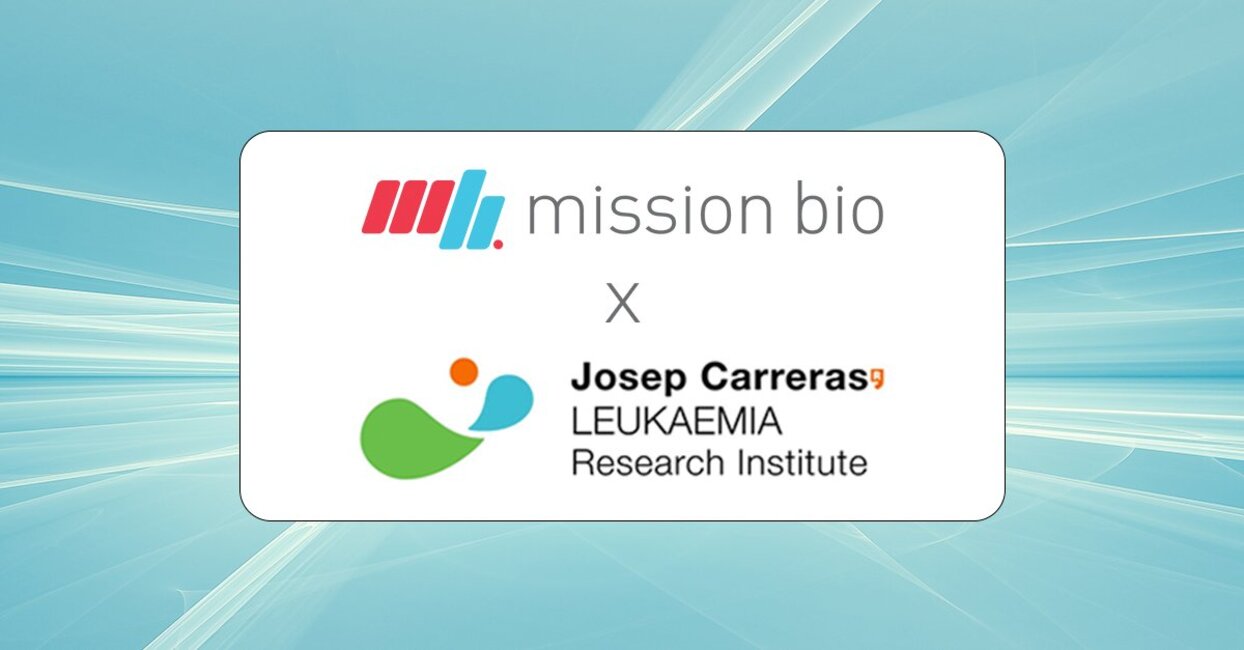Mission Bio names Josep Carreras Leukaemia Research Institute as First Center of Excellence for Tapestri Platform in Europe
The Josep Carreras Institute and Mission Bio’s partnership will further the Institute’s application of single-cell DNA sequencing to investigate disease progression, therapeutic resistance, and measurable residual disease (MRD) in blood cancers, as well as its novel breast cancer research program.

Mission Bio, Inc., the pioneer in high-throughput single-cell DNA and multi-omics analysis, announced a new Center of Excellence, located at the Josep Carreras Leukaemia Research Institute, Spain and led by Manel Esteller, MD, PhD. As Mission Bio’s second single-cell Tapestri Center of Excellence and the first in Europe, the Josep Carreras Institute will inform academic and industrial best practices using single-cell DNA and multi-omics sequencing in hematological malignancy research, as well as a new program in breast cancer.
As a leading leukemia research center in Europe, the Josep Carreras Institute has been a champion of single-cell analysis and launched a specialized unit in 2021. Today’s partnership will further the Josep Carreras Institute’s application of single-cell DNA sequencing to investigate disease progression, therapeutic resistance, and measurable residual disease (MRD) in blood cancers, as well as its novel breast cancer research program.
“Expanding our research capabilities, and others in Europe, with single-cell DNA and multi-omics analysis to more deeply investigate how hematologic malignancies progress and resist treatments will be crucial to discovering new biomarkers and therapeutics,” said Dr. Esteller. “Mission Bio’s partnership will greatly accelerate the process of genetic mechanisms by applying its novel workflows and panels across our 25 leukemia programs, and our growing breast cancer research.”
The Josep Carreras Leukaemia Research Institute is Mission Bio’s second Tapestri Center of Excellence, following an agreement with the lab of Jorge Reis-Filho, MD, PhD at the Memorial Sloan Kettering Cancer Center in March. Dr. Reis-Filho’s team is working closely with Mission Bio’s R&D teams to observe tumor heterogeneity and clonal architecture in solid cancers.
Through its centers of excellence, Mission Bio is partnering with leaders within the hematologic malignancy and solid tumor research communities as it continues to build and refine Tapestri's functionality to explore heterogeneity across tumor types. Tapestri is the only commercial product capable of simultaneously analyzing DNA and other analytes like cell surface proteins at the single-cell level through its unique two-step droplet microfluidics technology. Recent high-profile research in breast cancer, non-small cell lung cancer, and colorectal cancer, and melanoma have shown the importance of understanding cancer at a higher resolution. Tapestri can be used to interrogate clonal mosaicism and neoplastic transition, clonal evolution, and metastatic dissemination with its ability to co-detect SNVs and CNVs at the single-cell level in a scalable manner.
As a tool for understanding disease resistance, users can detect rare emergent clones early with reliable and sensitive loss of heterozygosity measurements to understand how driver mutations are added over time that allows tumor escape and metastasis. And single-cell multi-omics analysis has growing importance in precision cancer medicine, clarifying the clonal structure of tumors to guide combination therapeutic development and personalized treatment.
“We’re pleased to expand our Centers of Excellence program to Europe, thanks to Dr. Esteller’s leadership at the Josep Carreras Institute,” said Yan Zhang, PhD, CEO of Mission Bio. “The partnership strengthens Mission Bio’s position as a leader of single-cell sequencing in hematologic malignancies and sets both us and the Josep Carreras Institute up for success to uncover new biologic insights in solid tumors.”